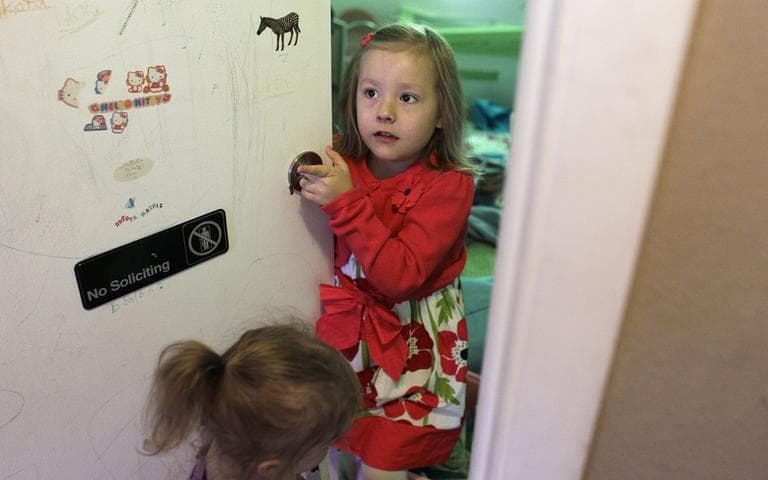Advertisement
Transgender Rights: Where Are We Now?
Resume
A month ago, an Emerson fraternity crowd-sourced the money for a gender reassignment surgery for their transgender frat brother. His insurance - which had initially denied the surgery - subsequently clarified its position and covered the procedure.
This week, the Arizona state legislature has proceeded with a bill that would roll back a Phoenix city council anti-discrimination measure that included lesbian, gay, bisexual and transgender people.
The Arizona state bill shields businesses that require transgender people to use facilities like bathrooms and locker rooms that correspond with their birth sex, not the gender they now identify with.
This got us thinking, how far are we now and how much farther do we have to go to, for transgender rights?
'A Sea Change' In Public Awareness
Masen Davis is the executive director of the Transgender Law Center, says the last 15 years have seen a "sea change" in how the average American thinks about transgender people.
"Its been really pretty spectacular to see that people are incredibly and increasingly accepting of people who's gender identity, the way they are inside, may not match the gender they were assigned at birth.
Davis says when he came out as a transgender man in 1998, there was very little of awareness of transgender people. Today, stories like that of six-year-old Coy Mathis are receiving national attention.
"We had very few laws protecting us from discrimination and harassment," says Davis. "And very few parents knew that being transgender was possible, much less actively supporting their children going to school or accessing health care."
Health Care Limitations
Though Aetna eventually agreed to cover the sexual reassignment surgery for Donnie Collins, the Emerson Fraternity brother who's friends successfully fund-raised for his surgery, Davis says that most health insurers continue to deny re-assignment surgeries for transgender people.
"Now the intent of those exclusions were to deny people access to transition related care — the specific medical care to fully be ourselves in the world," says Davis.
But Davis says that these health restrictions can go beyond reassignment surgery and can restrict transgender people from even basic care. Davis recalls a transgender friend who had a stress fracture in his leg.
"The insurance company argued because this testosterone for years, some how this testosterone had weakened his bones and was at fault for the stress fracture."
Davis says his friend was able to appeal that ruling, and get the medical care for his leg. And Davis says in general, more and more health care companies are taking these exclusionary measures out of their policies. He points to colleges as a leading force on this front - as students push for greater health coverage.
Guest:
- Masen Davis, Executive Director of the Transgender Law Center
This segment aired on April 5, 2013.